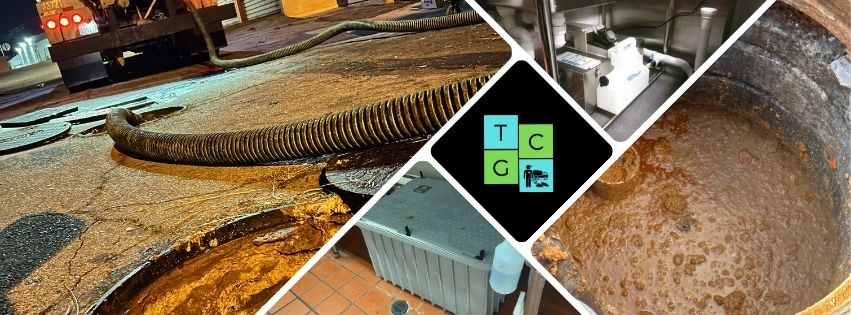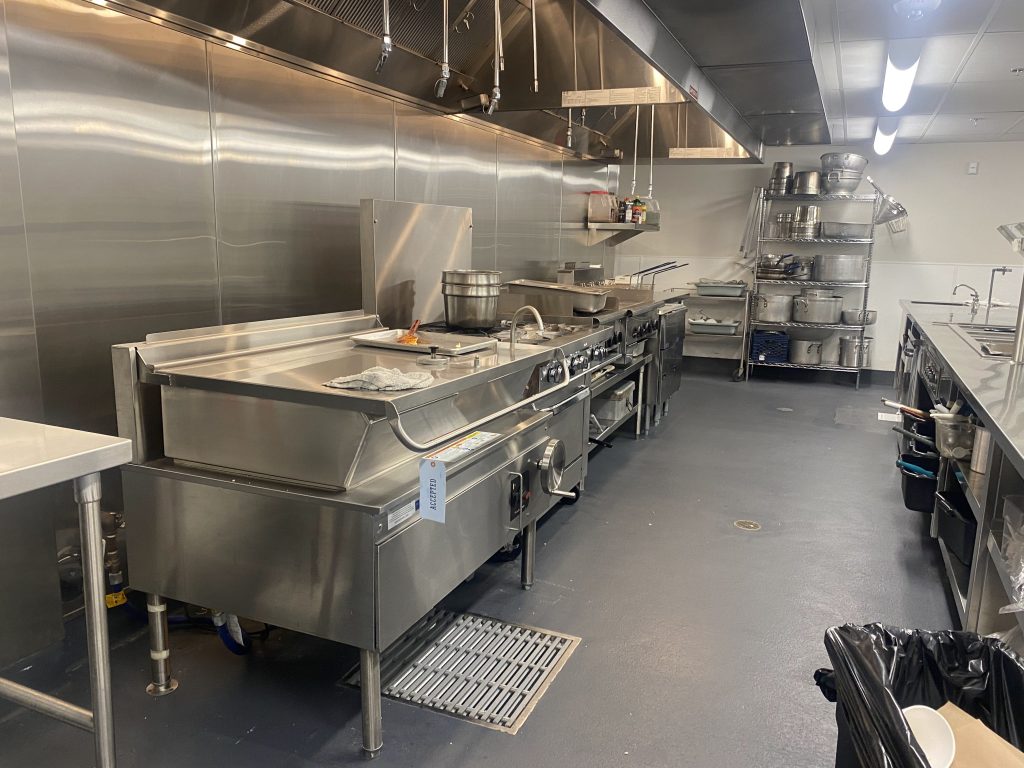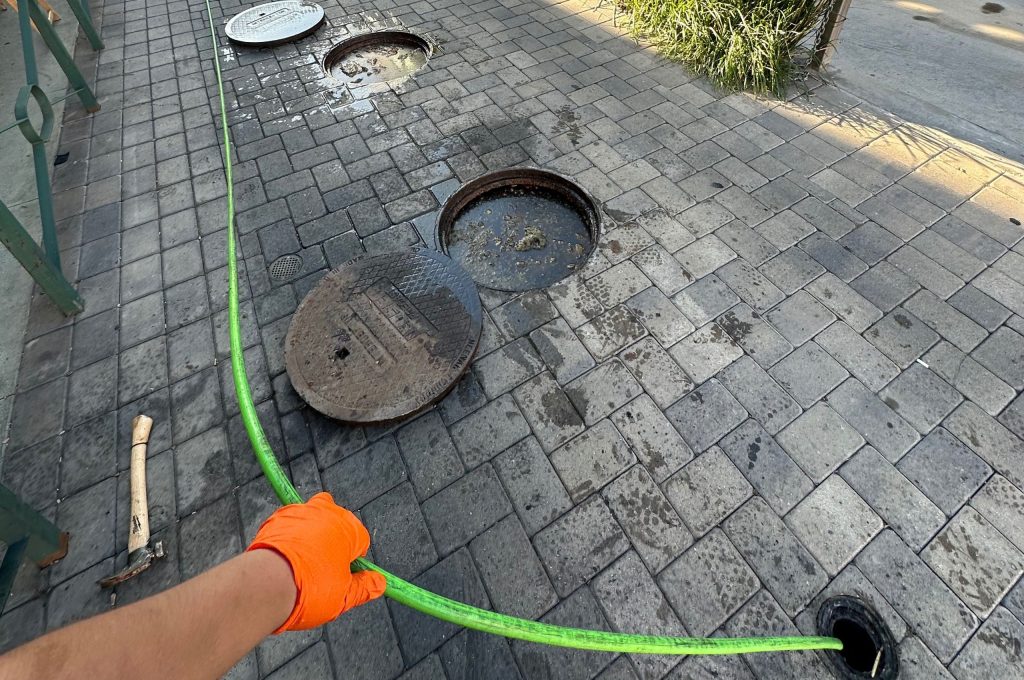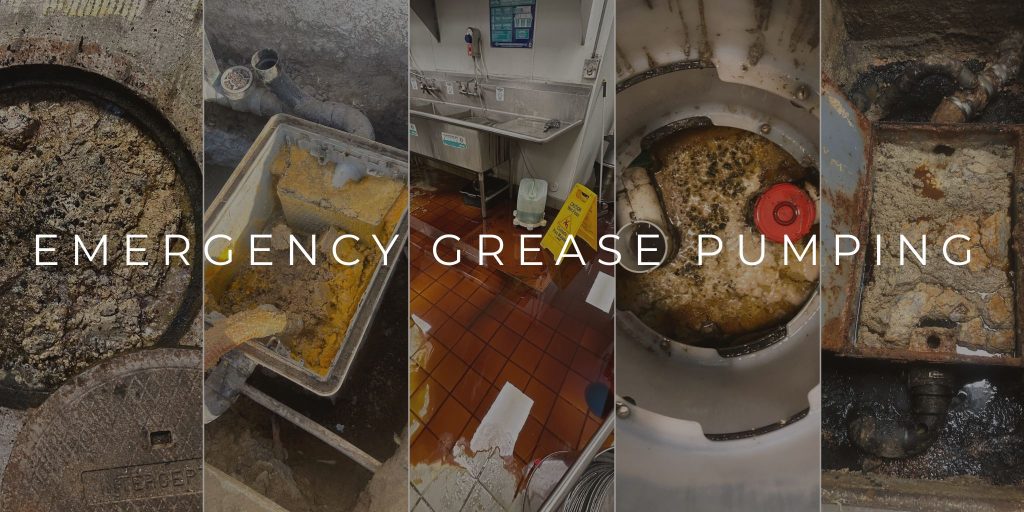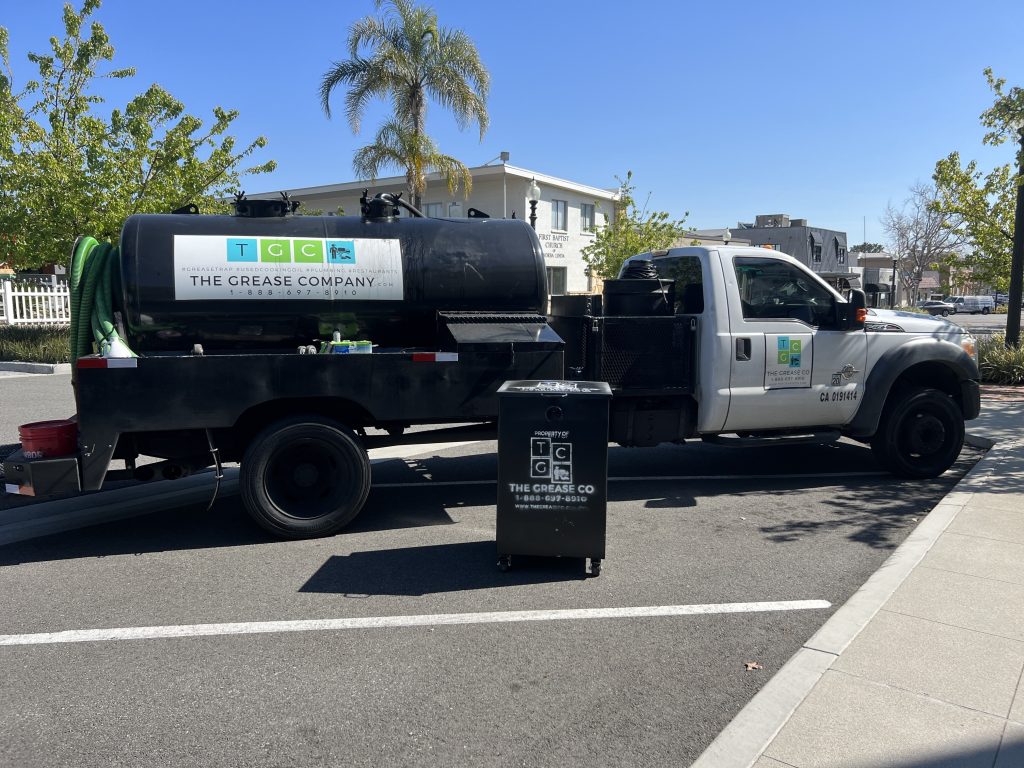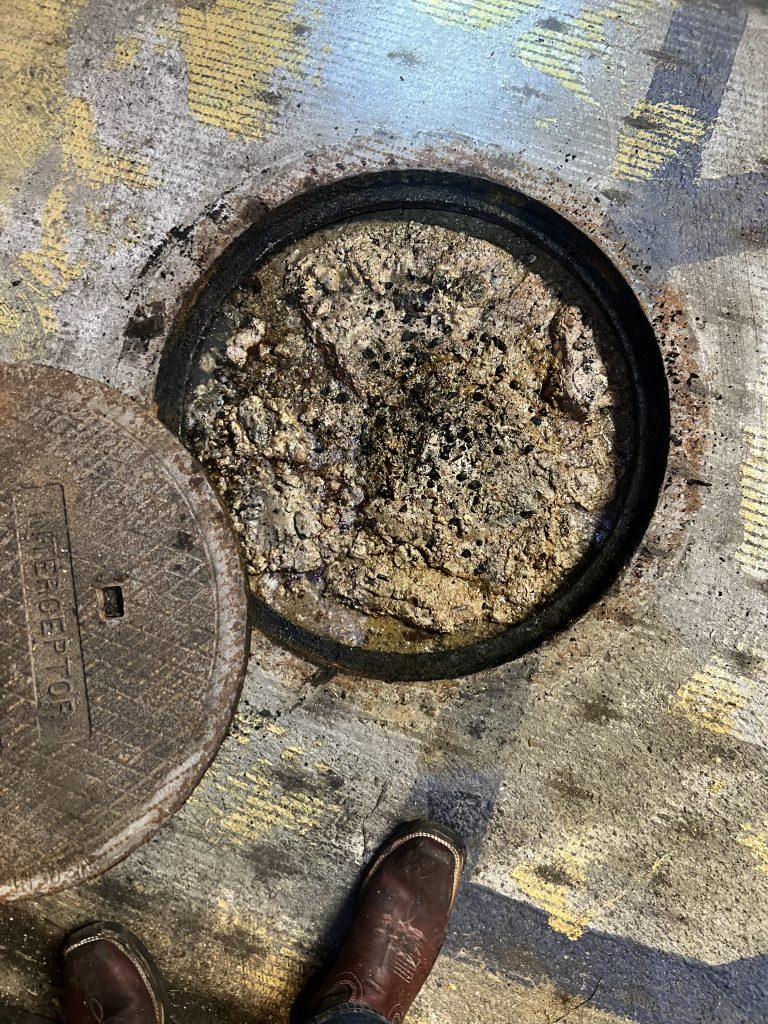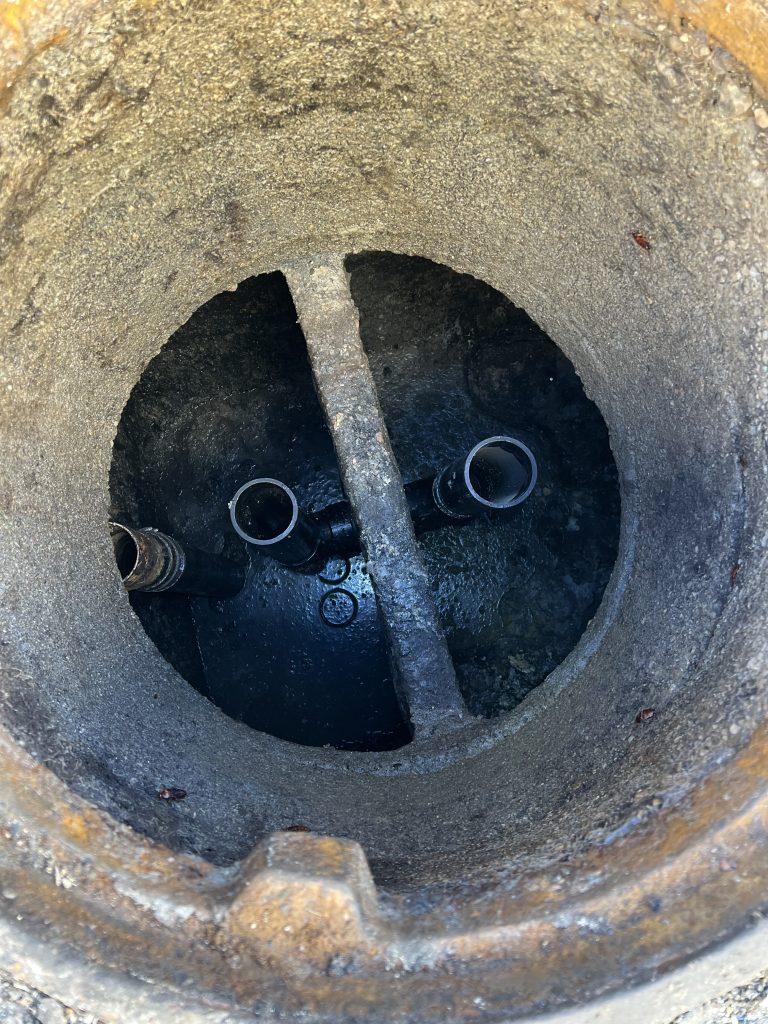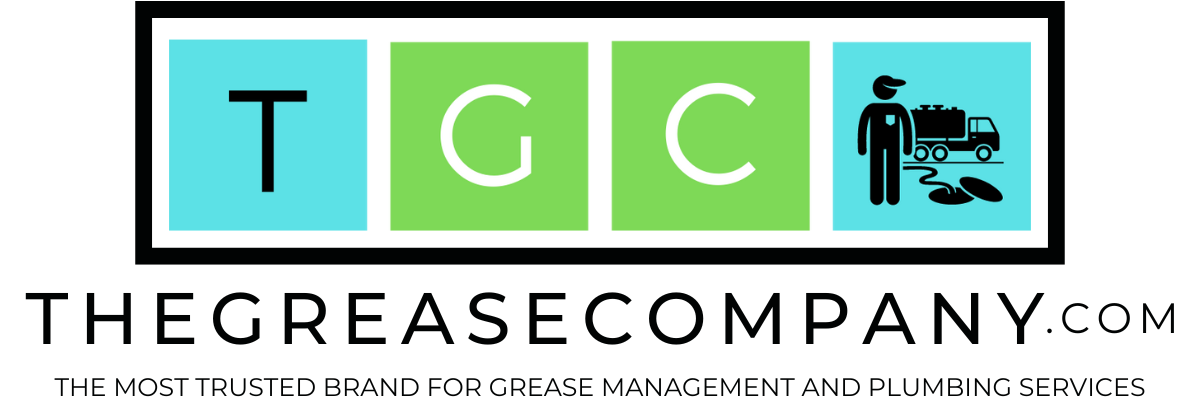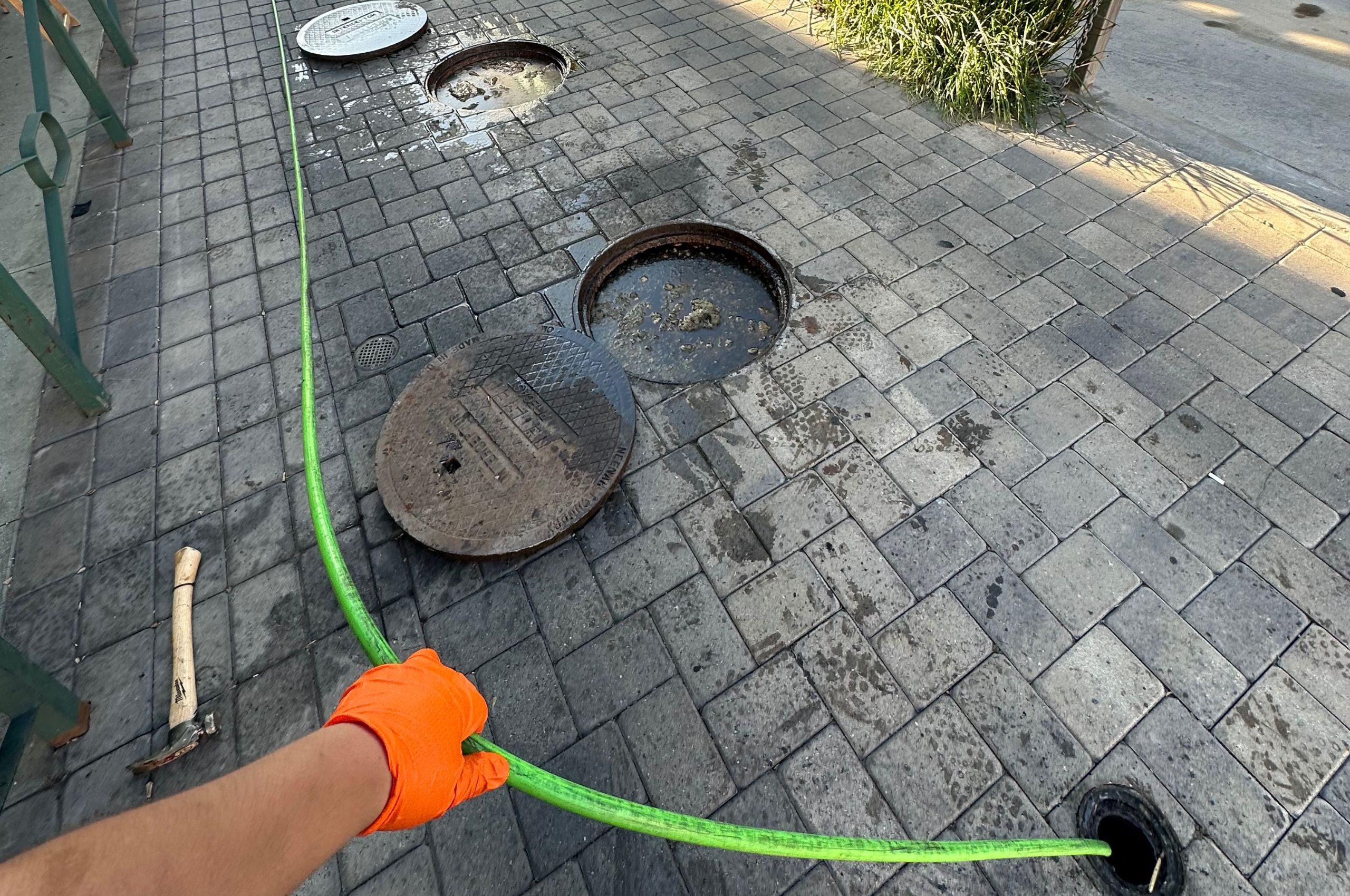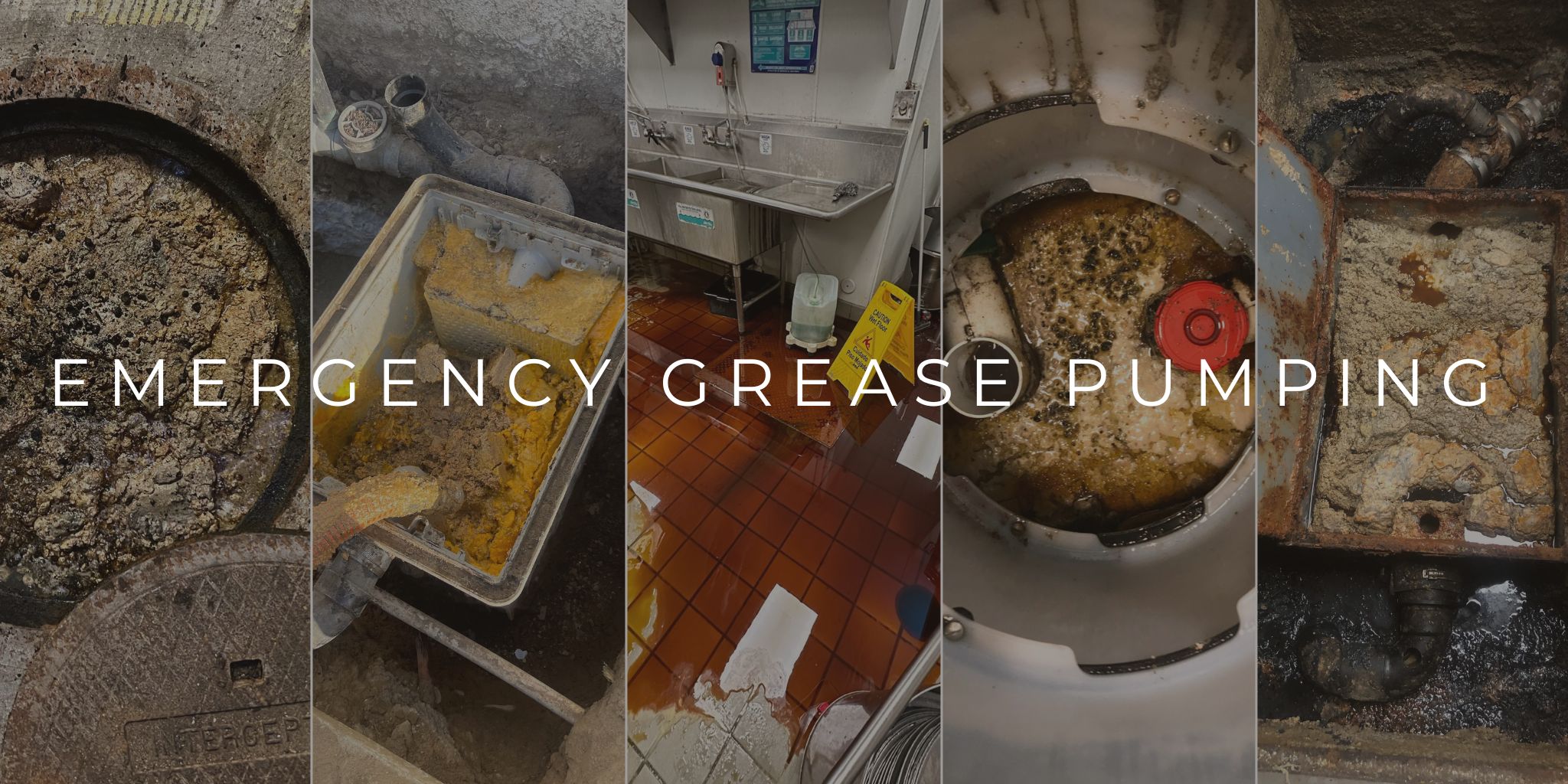
In the busy restaurant industry, a full grease trap can be a ticking time bomb, threatening your kitchen’s efficiency and operations. When grease traps overflow, they can cause foul odors, clogged drains, and costly health code violations that harm your restaurant’s reputation. These issues disrupt your daily operations, pose health risks, and drive away customers. The inconvenience and lost revenue from shutting down your kitchen can be significant, making immediate action essential.
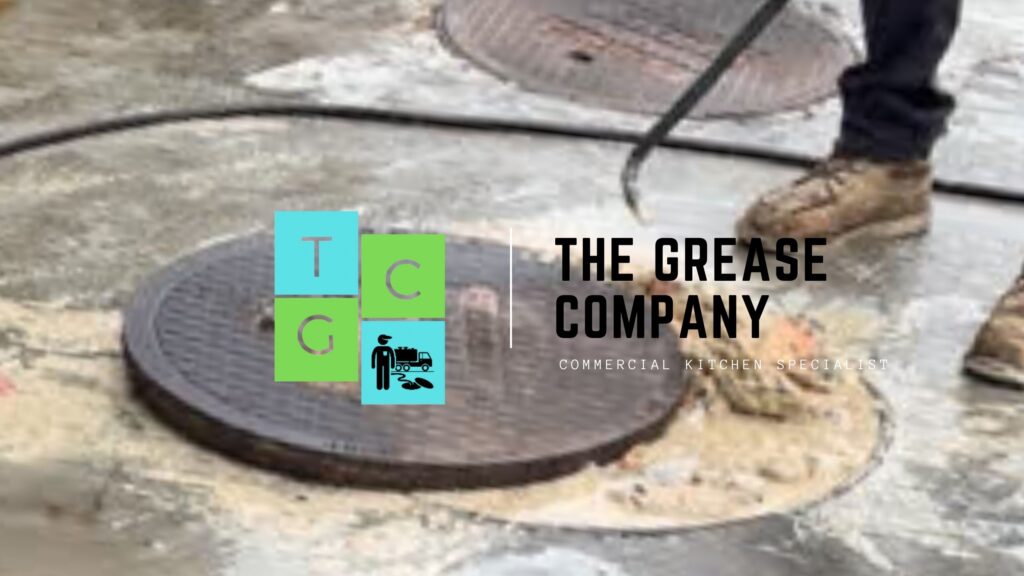
That’s where The Grease Company steps in as your trusted partner. We understand the critical need for a clean and functional grease trap, which is why we offer round-the-clock emergency pumping and cleaning services. Our experienced and dedicated team is always ready to respond, resolving your grease trap issues swiftly and efficiently to minimize any downtime for your business.
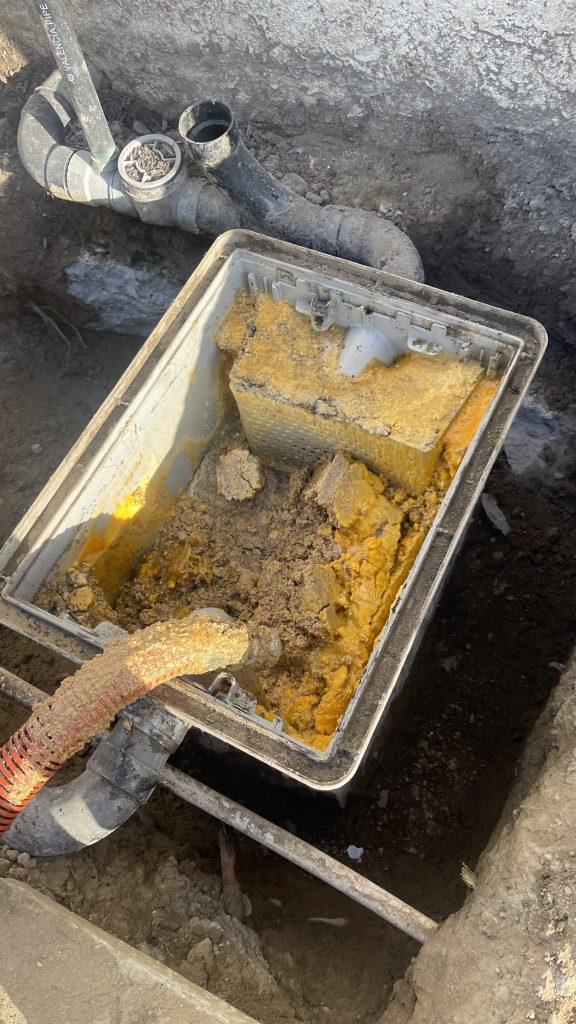
Back Up & Overflow
Is your kitchen drowning in grease trap chaos? Don’t let overflow and slow drains ruin your day! Take action now and call us for expert grease trap pumping. Let’s restore your kitchen’s flow, one drain at a time.
Plumbing Issues Cause By Grease Trap & Grease Interceptor
Maintaining a grease trap is crucial for any commercial food servicing establishments, as it prevents fats, oils, grease and solids (FOGs) from entering the plumbing system. However, when a grease interceptor or grease trap becomes full, it can lead to some significant issues that will impact your operations.
- One of the first signs of a full grease trap or grease interceptor is slow draining sinks and drains in the kitchen. As the grease trap fills up, fats, oils, and grease start to block the flow of wastewater passing through the device. This causes water to drain slowly and stay longer in sinks and dishwashing areas. If you notice your kitchen drains are sluggish, it’s a clear sign that your grease trap is nearly full and needs to be emptied.
- An overflowing grease trap or grease interceptor is a more severe sign that it is completely full and cannot hold any more waste. When this happens, the trapped grease, oil, and food particles spill out, creating a messy and unsanitary situation. This overflow can cause significant disruptions in your kitchen operations, making it essential to address the issue immediately. When a grease trap or grease interceptor overflows it’s imperative to immediately turn off all running water inside the kitchen and contact a grease pumping company. Regular maintenance and monitoring of the grease trap can help prevent such overflow incidents.
- A full grease trap or interceptor, or lack of regular service, can produce unpleasant odors that permeate the kitchen and even the dining area. Accumulated grease and food waste decompose, releasing foul smells that can be off-putting for both staff and customers. Persistent bad odors are a strong indicator that your grease trap needs cleaning. Addressing this promptly not only ensures a pleasant environment but also helps maintain your restaurant’s hygiene standards.
The Dangers of Exceeding The Maximum FOGS WASTE Capacity
Exceeding the maximum allowable FOGS waste capacity poses significant dangers for your grease trap. Designed to manage a specific amount of fats, oils, and grease (FOGs), once the FOGs content surpasses the 25% limit, the effectiveness of the grease trap diminishes. This excess concentration of FOGs results in various problems, including blockages within the system, leading to slow drainage and potential overflow of the FOGS recovery device. Moreover, the accumulation of FOGs contributes to the release of unpleasant odors as grease and food waste decompose. To prevent these issues, it’s crucial to conduct regular inspections and maintenance of the grease trap, ensuring it stays within the allowable limit. By doing so, you can maintain the efficient operation of your grease trap, uphold hygiene standards, and avoid disruptions to your restaurant’s daily operations.
Grease Pumping Company That Can Help You
In conclusion, when your restaurant or food servicing establishment is facing a grease trap or grease interceptor emergency, The Grease Company is here for you. Serving all of Southern California, including Los Angeles, Orange, San Diego, Riverside, San Bernardino, Ventura, Santa Barbara, and Imperial counties, we’re committed to providing prompt and effective emergency grease trap and grease interceptor cleaning services.
Our expert technicians are equipped to handle any crisis promptly, ensuring that your kitchen operations remain seamless and your commercial kitchen is running smoothly. With our 24 hours support, you can rely on our team to solve your grease trap and grease interceptor issues.
Don’t let a grease trap emergency disrupt your business – contact The Grease Company now for immediate assistance. Let us take care of the dirty work so you can focus on running your business. Reach out today and experience the peace of mind that comes with having The Grease Company on your side!
GET IN TOUCH
GET PUMPING TODAY
Importance of Regular Maintenance
Without proper maintenance, grease recovery devices can exceed their maximum FOGS capacity. When this happens, there is a high likelihood of plumbing problems such as slow drainage, backups, and even overflow. The overflow of FOGS can lead to both immediate issues within the establishment and significant blockages in the local sewer system, resulting in potential fines and hefty cleanup costs.
Risks of Neglecting Grease Recovery Device Maintenance
Excess FOGS due to improper cleaning or infrequent maintenance can cause:
- Major Backups: When the grease trap reaches its capacity, grease and other materials can back up into the kitchen, creating sanitation and operational issues.
- Overflow Issues: A neglected grease recovery device may overflow, leading to potential safety hazards and increased cleanup costs.
- Costly Repairs and Plumbing Issues: Clogged pipes and back-ups often require professional cleaning services, and repeated issues can cause long-term damage to the plumbing infrastructure, which can be expensive to repair.
Best Practices for Preventing Plumbing Issues
- Routine Cleaning: Schedule regular cleaning of your grease recovery device to keep it functioning at peak capacity.
- Inspection: Have a professional inspect the device periodically to ensure it is in good working order and not close to exceeding its capacity.
- Avoid Disposing of Excess FOGS in the Sink: Encourage staff to scrape off excess grease and food solids before placing dishes in sinks.
By understanding and prioritizing the maintenance of grease recovery devices, commercial kitchens can minimize plumbing issues, avoid unnecessary expenses, and ensure compliance with environmental regulations.
